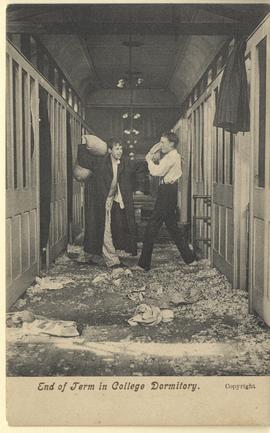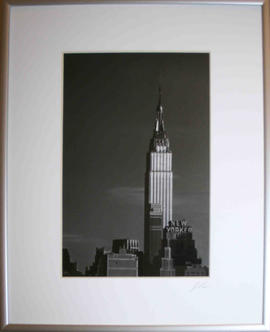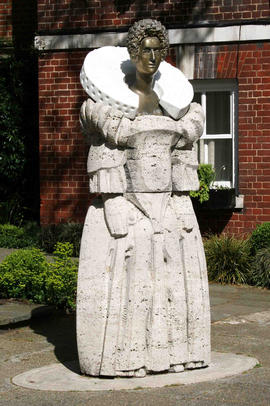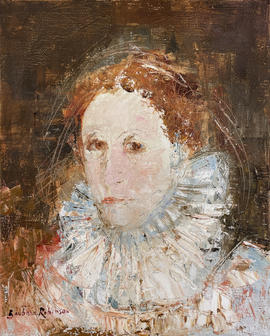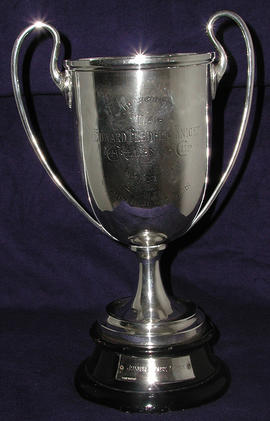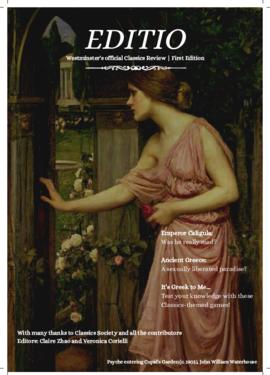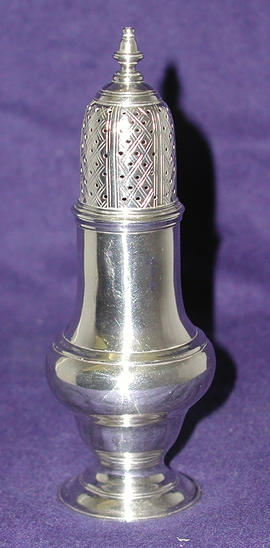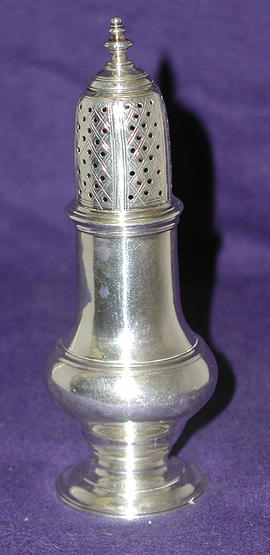One copy annotated on reverse by R.S. Chalk, as follows:
'This picture would have been ‘posed’ by John Brown. As Under Election John he would have had to clear up the mess after Term, together with the long-suffering ‘Nymphs’ (as the two College charwomen were termed).
I do not recall any such (rather senseless) ragging at the end of any of my 12 Terms in College (in any case, at the end of Play Term Under Elections, depicted here, were accommodated up Saignes).
There was however one annual event on the last Saturday night of each Election Term, as an aftermath of the feast which followed Declams. This was Conveniences Race, a knock-out in which the Juniors competed in pairs, as a part of gaining their ‘freedom’. It consisted of a hurdle-race over towel-horses the length of Dormitory, out to Conveniences (Night Japs), to touch the door-handle there (a good bit of rough play took place here) and so back, cheered by occupants of one’s Room. Competitors wore pyjamas, and (an innovation I remember in 1924) top hats with white ties round the crowns.'
Signed by the artist.
Signed and inscribed in latin to the border of the oval flush base
Spender, Matthew, 1945-Timestamp Index:
Background and family in Greece. [2:55] Relations with boys in his house. Conditions for boarders. More Spartan than might be normal today. [4:50] The ‘60s. Changing times and changing teaching styles at Westminster. [7:06] Portraits of specific teachers. Several intellectuals who had left Europe before WWII. [9:40] He didn’t engage very much in extra-curricular activities. Cross-country running in Grove Park. [11:55] Commute to school with chauffeur. [12:48] No discussion of homosexuality at Westminster in the ‘60s. No homophobic bullying. Atmosphere of unspoken tolerance. [16:15] Lack of awareness about changing legislation around homosexuality. Coming out to his parents and father’s concern for his future. [19:55] Less involved in societies because of being a day boy. [20:32] Tolerance of religious minorities at the school. Perhaps partly due to European teachers. [22:30] John Carleton, Head Master, a remote figure for most boys. [23.53] More open-minded teaching than in some other public schools. [25:14] Factory visits during a harsh winter when sport was not possible. [25:47] Fewer social relationships outside Rigaud’s. Social life tended to be contained within your house. [26:49] Discipline and changing relationship to senior boys during the ‘60s. [28:28] Reaction to a serious misdemeanour surprisingly lenient and understanding. [29:57] Involvement of parents in school life. Parents’ evenings. [31.29] Alexander, friend and future partner, and Richard McKenna, a group of three close friends. [33:15] Tinned food at school. Unpleasant but edible. [33:56] Friendship with Alex. [34:44] Alex’s friendship with Theo Zinn, Classics Master. [33:58] Life after Westminster. [37:00] A favourite memory of Westminster: visiting Fortnum and Mason’s with Alex.
Inscription: 'Edward Frederic Knight Challenge Cup'. Junior House Fours. Not loaded. No cover. Handles, Wooden plinth with silver inscribed plaque 'Junior House Fours'. Awarded: 1929-1979. Several small dents.
Martin, Hall & Co LtdHalf length portrait; turned slightly to the right, but with almost full face; wearing a wig, dark cloak and white shirt. Unglazed
Pepper caster [identical to T0001.068 but different date & maker].
Peaston, Robert, active 18th CenturyPepper caster [identical to T0001.067 but different date & maker]. Maker's mark obscured, probably SW.
